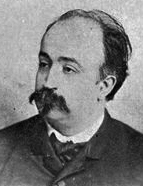

Regarding his pioneering writing on the history of economic ideas in Portugal (1976), as well as clear signs of the so-called Historical School — the importance given to the nosce te ipsum, the need for a profound knowledge of the national reality in order to correct it — we should emphasize the evident influence of Friedrich List. In line with his thinking, Laranjo went on to rehabilitate various mercantilist authors, as well as others, closer chronologically, who showed heretical inclinations with respect to nineteenth-century liberalism, above all Solano Constâncio, explicitly noted as a Portuguese precursor to List and his “national economy” (Idem, p. 88). In fact, he attempted as a rule to locate Portuguese authors in line with schools at a European level, not with the intention of inventing any “Portuguese” school or the like, and even less as an apology for any type of agrarian theory, but rather to suggest that there was a certain adhesion to physiocratic ideas amongst some writers of the late eighteenth century. Laranjo claimed that, by his proposals, Domingos Vandelli “shows himself to be a physiocrat” (idem, Ibidem, p. 43), though without expressing by this characterization any sympathy — rather the contrary. The study of the history of economic thought that he undertook can, taken as a whole, be integrated into his simultaneous concern for historiography, industry, and “social” matters, that is, closely related to the “historical school” and “academic socialism” (Kathedersozialismus), which were characteristic of a wide movement of European authors at this time (As Ideias Económicas e Sociais de José Frederico Laranjo, pp. 488–527).
Also worth mentioning is his study of political and constitutional law, which aims to identify the emergence, in the historical longue durée, of universal values, the true glory of modernity, and his emphasis on the importance of consolidating the nation states as the vehicle par excellence for these values: “Above all differences of race, of family, of historical evolution, of civilization, of interests, there is a quality common to man, being human; […] men form a greater whole, humanity. It seems that this idea must be older than the partial ideas of race, family, tribe, city, people, nation, etc.; in them is not the following: antiquity for many centuries knew neither the idea, nor the word […]. It was necessary for these great social groups called nations to be formed, to conceive of the hope of organizing humanity juridically” (Princípios…, pp. 28–29).
